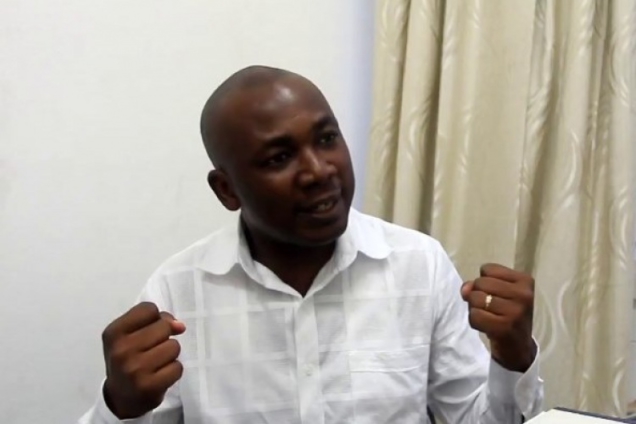An Economist with the University of Ghana Business School (UGBS), Prof. Godfred Alufar Bokpin says expenditure and fiscal discipline are the prudent mechanisms to resuscitate the ailing economy post Covid-19.
Contributing to a discussion on the controversial Electronic Transaction Levy (E-levy) on Accra-based Citi FM, the Economist described the tax policy as a lazy-man’s approach to solving the dire financial issues of the state.
In his view, "the E-levy is regressive" and not the sustainable solution to the revenue shortfall government continuously claim.
“I don’t support E-levy because it is not the way to go. It cannot support this large government and wasteful expenditures. This is the kind of home-grown solution we are talking about because we can’t largely leave out the inefficiencies and talk about E-levy as the only solution. No, we have to look at it holistically.
“I don’t think that it is in our best interest. The real problem is that we have accommodated and allowed too much wastefulness and leakages in our revenue envelop. When wastefulness is accommodated to the level that we have and with the level of corruption and inefficiency, more money doesn’t solve your problem," he stressed.
The nation has been divided on the proposed E-levy since Finance Minister, Ken Ofori-Atta, announced it in November 2021.
While a fraction believes that the tax policy will generate revenue for the government to undertake developmental projects, others believe it will intensify the sufferings of citizens.
The tax policy seeks to add a 1.75 per cent charge on every electronic transaction over ¢100.
Meanwhile, a former NPP MP, Mark Assibey-Yeboah says government should rather seek financial support from the International Monetary Fund (IMF) instead of introducing the E-levy.
But reacting to this, Mr Bokpin said IMF should be the last resort to salvage the economy.
The Economist maintained that eradicating wasteful spending and ensuring discipline in revenue generation and expenditure are more sustainable techniques.
According to him, “a spoilt child needs discipline, not more money," hence, an efficient revenue control should be government's lifestyle.
However, he urged government to hold a national dialogue should it consider seeking support from IMF.
“I am also not against totally going back to the IMF, it’s probably the last resort. We all do acknowledge that we need revenue, but E-levy is a much more lazy approach and one that does not recognize the realities on the ground, and we want to use E-levy to further depress the poor. It’s unfortunate.
"Ghana has been to the IMF more than 15 times and if you mismanage your economy, and you go to the IMF, it comes at a price because the financial adjustments will also marginalize the poor,” he observed.
Latest Stories
-
MELPWU signs first-ever Collective Agreement with government
25 mins -
I’ve not been evicted from my home – Tema Central MP refutes ‘unfounded’ reports
26 mins -
After Free SHS, what next? – Alan quizzes and pledges review to empower graduates
57 mins -
Wontumi FM’s Oheneba Asiedu granted bail
1 hour -
Alan promises to amend the Constitution to limit presidential powers
1 hour -
Ghana to face liquidity pressures in 2025, 2026 despite restructuring most of its debt – Fitch
2 hours -
NPP’s record of delivering on promises is unmatched – Bawumia
2 hours -
Mahama: It’s time to dismiss the incompetent NPP government
2 hours -
Today’s front pages: Monday, November 25, 2024
2 hours -
T-bill auction: Government misses target again; interest rates continue to rise
2 hours -
We have a bad technical team; Otto Addo and his team should go – Ernest Thompson
3 hours -
Hindsight: Why Accra Lions’ present problems do not define them
4 hours -
10-year-old Lisa Laryea arrives at Wits Donald Gordon Hospital in South Africa for bone marrow transplant
4 hours -
23 ambassadors inducted to take on 2025 GSTEP Challenge in three regions
5 hours -
Ghana Shea Workers Union inaugurated
5 hours

